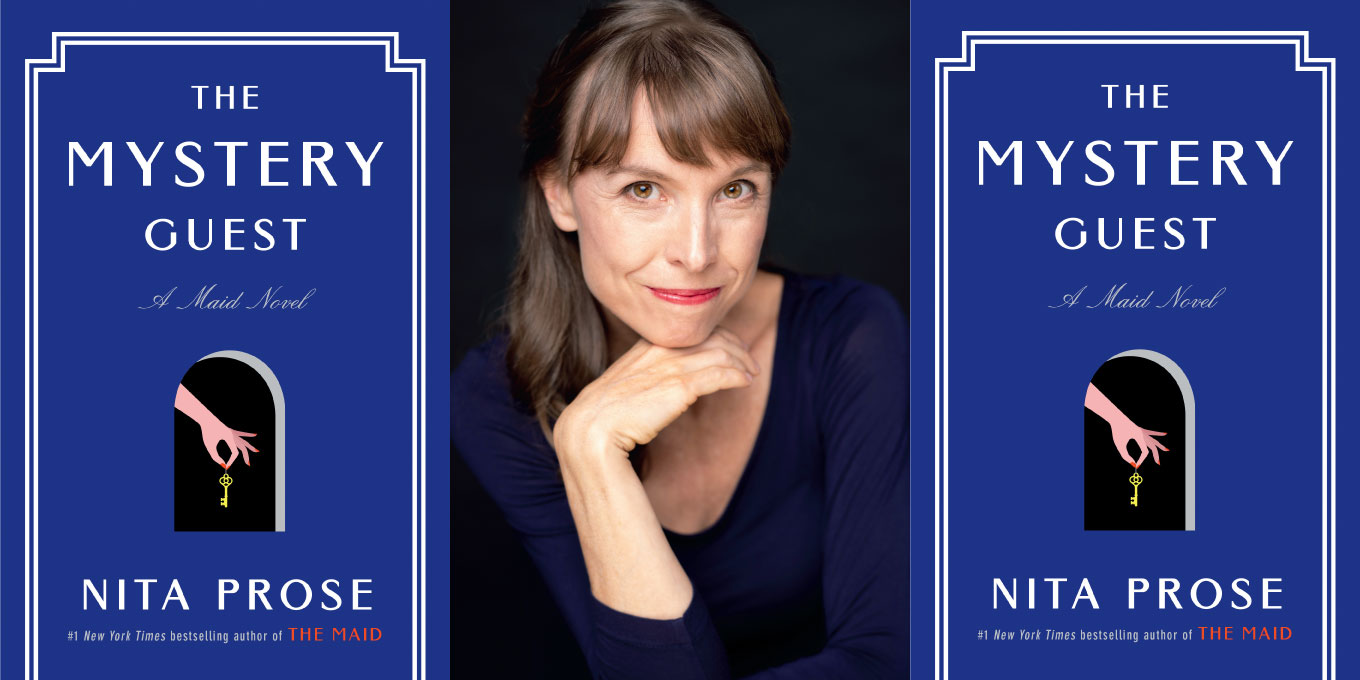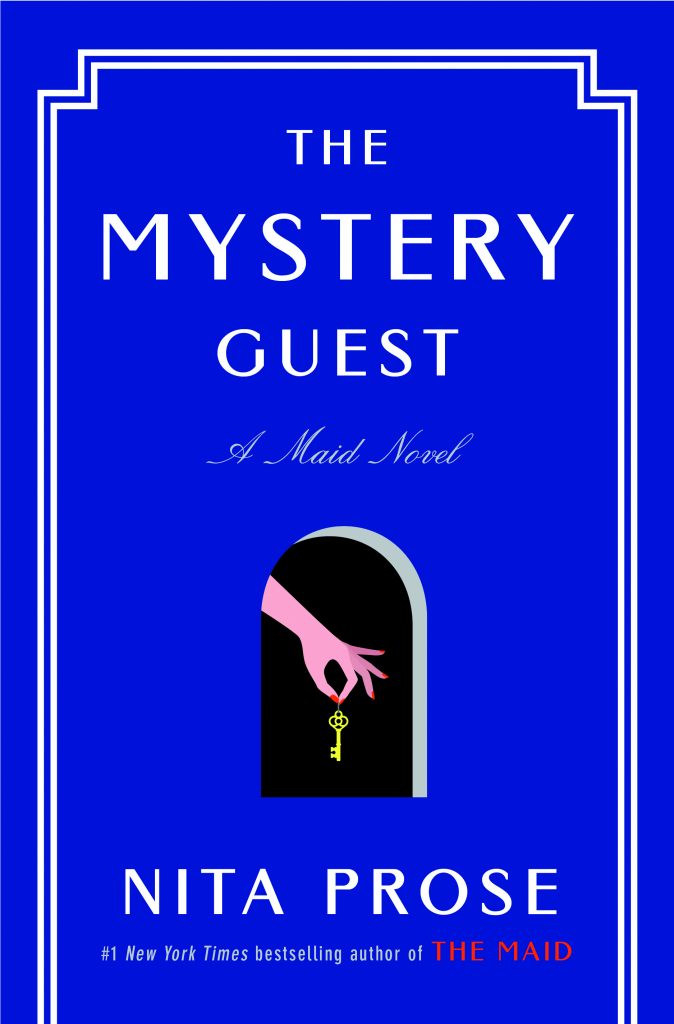Culture
Canadian Novelist Nita Prose Is Entering a New Chapter
And wants to take you with her.
by : Patricia Karounos- Dec 7th, 2023

Dahlia Katz
“Somebody got the math wrong.” That’s what Canadian writer-editor Nita Prose first thought when she heard that her debut novel, The Maid, had sold over one million copies in North America (and even more in the 40-plus countries it’s available in around the world). But there was no mistake. The 2022 whodunit, about fast-thinking, straightforward hotel maid Molly, who is accused of murder after she finds a wealthy guest dead in his room, remains a literary phenomenon. It was an instant bestseller in Canada, spent weeks on the New York Times Best Seller list, was a Good Morning America Book Club pick and has been honoured with a flurry of awards, including a win at Australia’s prestigious Ned Kelly Awards for Best International Crime Fiction. It’s even in development to be adapted into a film, which is slated to star Florence Pugh. And with all the fervour, it became clear—from both a business point of view and the many enthusiastic readers Prose has interacted with—that people wanted more of Molly the maid and her cozy mysteries.
Prose, however, wasn’t immediately convinced. “The tricky part was how to deliver more without delivering less,” she says. “The challenge was whether I could unveil a new story that would do Molly justice rather than diminish a character that so many readers hold close to their hearts. I said to myself and my editors: ‘I’m only going to commit to this once I feel I have something that is as good or better than The Maid. You will never see it if I don’t think I’ve succeeded.’”
Then came what the writer calls “a lightning bolt” of an idea. Prose had been toying with setting a story in an old house filled with history and secrets when she was travelling in the U.K. to promote The Maid. While there, she visited a museum in a castle and came across two unusual items: a mummified rat carcass and an old silver spoon. As it turned out, this was a commemorative display for a maid who’d worked in the castle long ago and been fired for stealing silverware—though she claimed she didn’t do it. Years after her firing, when restoration work was being done on the building, the walls were opened up and the missing silverware was found in a rat’s nest. Suddenly, Prose couldn’t get her mind to stop whirring.

Price: $25
That parable is how she starts The Mystery Guest, a standalone sequel to The Maid that hit shelves on November 28 (and is published by Viking Canada). Molly is back, but now she’s the head maid at the Regency Grand Hotel and much more self-assured and secure with where she’s at in life. But when a famed reclusive author—whom Molly’s kind-hearted late gran worked for decades earlier—drops dead during an event at the hotel, Molly finds herself back in the middle of a criminal investigation, and it’s being led by the same detective who tried to pin the last murder on her. Whereas The Maid was, in part, about exploring how human connection and care should be enough to set aside differences, The Mystery Guest homes in on how finding a sense of belonging can change how you operate in the world. “It’s really about growth and coming into yourself,” says Prose, who is also the vice-president and editor-in-chief at Simon & Schuster Canada in Toronto under her full name, Nita Pronovost. (She adopted “Prose” as a pen name to distinguish between her dual roles in the publishing world.) “And with that growth comes a real curiosity about who other people are too—when you grow into yourself, you have more room to consider others.”
Molly isn’t the only one who has gone on a journey of self in between the two books. As a writer, Prose has evolved too and now feels a greater sense of confidence and trust in herself as she works. This has also led to her finding more enjoyment in the act of writing, something most writers will tell you is hard to do. It’s a long way from the rural route outside of Toronto that Prose grew up on—but, then again, not quite.
“I write for readers. My goal is not to complete the picture but to leave enough space for them to embellish, see and create in their own minds.”
She’s always been a fanatical “omnivore” reader, eagerly tearing through books of any and every genre. “I loved the sense of escape reading gave me—the feeling of being transported to different worlds and understanding different people through characters,” says Prose. “I was often reading things that were supposedly for ‘older,’ more ‘mature’ kids, and I’m sure I didn’t understand everything I was reading at the time, but I loved the feeling of curiosity and [hoped] that maybe one day I would come to understand these things more fully.” But writing wasn’t a career she chased. She spent time as a special-education teacher, sharing her love of reading with her students, before going to school for publishing, which is how she ended up working at Simon & Schuster Canada. As an editor, Prose has overseen titles by Ruth Ware, Kate Morton, Iain Reid and Rupi Kaur. She’s even ghostwritten books and published reviews. And although reading, teaching and editing have all occupied a similar space in her brain, writing professionally—crafting her own stories actually intended for other people to read—still wasn’t something she ever considered.
Until a lightning bolt—different from the one that sparked The Mystery Guest—struck, that is. In 2019, Prose was on a business trip when she walked into her hotel room and startled a maid who was tidying up. She has often talked about how that interaction made her realize that being a maid is both an invisible and an incredibly intimate job, and on the plane home, she started writing what would become The Maid and couldn’t stop. “The lightning bolt is just one glorious gift—then there’s the hard part,” she says. “When I got that idea, there was something about it that made me really want to try to get through the tough stuff. I wanted to see, just for myself, if I could make it to the end of that story.”
Now Prose knows that there’s an actual audience for her writing, so she did feel some pressure as she worked on her second novel, especially after the beyond-expectations success of her debut. But she wouldn’t change a thing. In her mind, the relationship between writer and reader is symbiotic and invaluable. Books are the product not just of their authors but of their readers too. “My feeling has always been that the book isn’t mine when it’s done—there’s a feeling of relief that comes over me because this thing I’ve held close to my heart is no longer mine and I can give it away, and it can mean something, hopefully, to someone else,” she says. “I write for readers. My goal is not to complete the picture but to leave enough space for them to embellish, see and create in their own minds. It makes writing easier because then I don’t feel completely alone.”
Newsletter
Join our mailing list for the latest and biggest in fashion trends, beauty, culture and celebrity.
Read Next

Culture
These Pea, Mint and Spinach Fritters Are the Ultimate Spring Snack
Served with a little creamy yogourt sauce on the side, these fritters are an ideal meal, appetizer or shareable snack.
by : Margaux Verdier- May 7th, 2024

Here’s What to Pack For Your Next Vacation—So You Don't Have to Stress About It
10 things you need to travel well-prepared, and in style.
by : Lauren Knowles- May 7th, 2024

Beauty
ELLE Tried It: Five Serums to Up Your Skincare Game
Members of the ELLE team tested Avène Dermatological Laboratories’ five new concentrated serums. Here's what they thought.
by : ELLE Canada- Apr 25th, 2024




